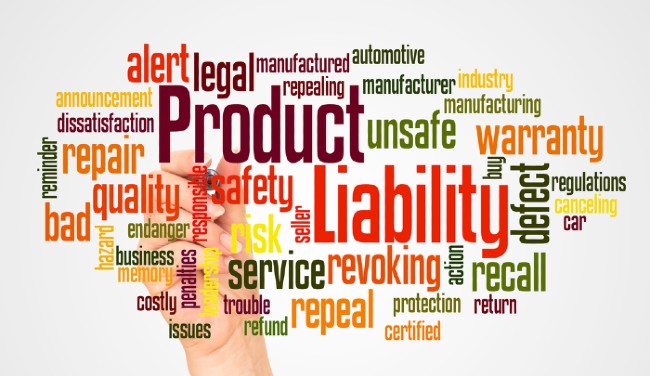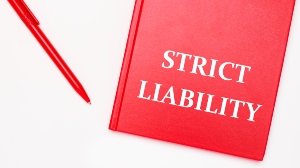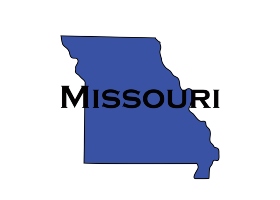
As consumers, we purchase products all the time – a new car, a child’s toy, a new power tool. Most of the time, they are safe and work the way they are supposed to; however, sometimes they do not. Sometimes a product can be defective, and sometimes that defective product can seriously injure the person using it. Thousands are injured by defective or dangerous products every year.
That’s where product liability comes in. Most consumer goods are considered products for purposes of a product liability claim.
Product liability holds a manufacturer or seller liable for putting a defective product on the market. Product liability law provides a legal recourse for victims of defective products to be compensated for their injuries.
Product liability claims can be filed under several different theories, including:

Most often, claims will be filed under strict liability. Why? Because it requires a lower burden; it does not require a showing of fault. This means that you, the plaintiff, do not need to prove the defendant did anything wrong; only that the product was defective or posed a risk of harm. Then, it is up to the defendant to show why they should not be held responsible. (The plaintiff must still prove causation, that the unsafe or defective product caused the risk of injury in the first place.)
In other words, manufacturers are “strictly” liable for product defects occurring during the manufacturing process, regardless of the manufacturer’s level of care.
Who is responsible for product liability claims?
All sellers of a defective product who are in the distribution chain may be held liable. That includes:
Product liability claims rely on state laws; there are no federal laws that apply.
Missouri Products liability claim defined.
 537.760. As used in sections 537.760 to 537.765, the term “products liability claim” means a claim or portion of a claim in which the plaintiff seeks relief in the form of damages on a theory that the defendant is strictly liable for such damages because:
537.760. As used in sections 537.760 to 537.765, the term “products liability claim” means a claim or portion of a claim in which the plaintiff seeks relief in the form of damages on a theory that the defendant is strictly liable for such damages because:
(1) The defendant, wherever situated in the chain of commerce, transferred a product in the course of his business; and
(2) The product was used in a manner reasonably anticipated; and
(3) Either or both of the following:
(a) The product was then in a defective condition unreasonably dangerous when put to a reasonably anticipated use, and the plaintiff was damaged as a direct result of such defective condition as existed when the product was sold; or
(b) The product was then unreasonably dangerous when put to a reasonably anticipated use without knowledge of its characteristics, and the plaintiff was damaged as a direct result of the product being sold without an adequate warning.
 If you or a loved one suffered an injury due to a dangerous or defective product, you may have a product liability case. An experienced product liability attorney can answer your questions. Contact the law offices of Nash & Franciskato at (877) 284-6600. One of our experienced staff will speak with you personally and will provide you with a free, no-obligation review of your case.
If you or a loved one suffered an injury due to a dangerous or defective product, you may have a product liability case. An experienced product liability attorney can answer your questions. Contact the law offices of Nash & Franciskato at (877) 284-6600. One of our experienced staff will speak with you personally and will provide you with a free, no-obligation review of your case.
START YOUR FREE CASE REVIEW TODY
If you would like to receive news and blog updates on a regular basis, sign up to receive our email newsletter. Your email address will only be used to send you our newsletter and respond to inquiries.
Past results afford no guarantee of future results and each case is different and is judged on its own merits. The choice of a lawyer is an important decision and should not be based solely upon advertisements.
Editor’s Note: This post was originally published May 15, 2020. It was reviewed on February 29, 2024, and updated for content and accuracy.